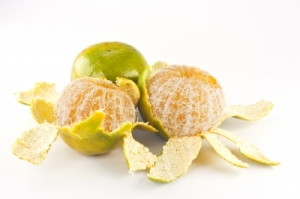Most women start to experience menopause, on average, around the age of 45-55, though for some women the onset of menopause can arrive a little earlier than expected. This is sometimes know as peri-menopause. From when you start to experience menopausal symptoms, there is normally an approximate 5 year period, during which your body changes dramatically due to the decrease in the levels of hormones produced by the body including oestrogen, progesterone and testosterone. One of the biggest changes (other than no longer being able to conceive) is the dramatic drop in the production of natural collagen, which is what keeps your skin looking smooth and supple when you are younger.
 During this 5 year period, your collagen levels can drop by up to 30% causing your skin to become dry and itchy, and also lose it’s elasticity leading to wrinkle formation. There are steps you can take to defy the signs of ageing by ensuring that your skin is cared for correctly and by taking a holistic approach to caring for your body. It’s true when people say “what you put in your body is what you get out of it”… or something like that, but what I mean is as you get older, you may even have to re-consider the way you eat, drink, sleep and care for yourself, to accommodate for the pre-mentioned changes that your body will undertake.
During this 5 year period, your collagen levels can drop by up to 30% causing your skin to become dry and itchy, and also lose it’s elasticity leading to wrinkle formation. There are steps you can take to defy the signs of ageing by ensuring that your skin is cared for correctly and by taking a holistic approach to caring for your body. It’s true when people say “what you put in your body is what you get out of it”… or something like that, but what I mean is as you get older, you may even have to re-consider the way you eat, drink, sleep and care for yourself, to accommodate for the pre-mentioned changes that your body will undertake.
Firstly, it is important to identify your skin type to be able to identify the right regime to stick to. It may seem obvious and I am sure that many of you are well practiced in listening to people try to advise what the best thing is for your ‘daily skin routine’, but when you hit menopause your skin really does change and so the methods that you have previously used may no longer be suitable for your skin.
Use our guide below to help identify which type of skin you may have and then refer to our Treatments page to find some useful and effective methods of caring for your skin during menopause.
DRY – if you are noticing that your skin has become more itchy or cracked than usual, it is likely that your hormonal changes have caused this to happen. Changes to your lifestyle and daily routine can accommodate for the loss of moisture. This will also help to prevent more wrinkle formation, as your skin will be more hydrated and therefore more supple.
OILY/ACNE – when you enter menopause, your skin can develop acne due to you hormonal changes and your skin can become more oily. Your epidermis, the outermost layer of skin, also slows regeneration of new skin cells and so your pores can become easily clogged. You must find the right skin care regime for you and take steps to avoid the build up of oils and breakouts.
SENSITIVE – your skin can become extra sensitive to cleansers and soaps which can also lead to outbreaks related to acne. This is because your skin becomes thinner and more vulnerable to the everyday  challenges that life throws at us. This can be cared for by using the appropriate products for sensitive skin and avoiding certain chemicals. It is also really important to wear good SPF protection against further damage from the sun.
challenges that life throws at us. This can be cared for by using the appropriate products for sensitive skin and avoiding certain chemicals. It is also really important to wear good SPF protection against further damage from the sun.
SUN DAMAGED – if you have several brown spots that look like freckles, chances are that you have had a bit too much sun in your lifetime. Sun exposure can also make your skin appear more wrinkled and of course their are all sorts of risks involved with sunbathing such as skin cancer and general burning. Remember that your skin is more susceptible to damage during the menopause and you should take care by covering yourself in sun block with at least an SPF of 15, to be applied at least 20 minutes before leaving the house to be most effective.
ROSACEA/COUPEROSE – Rosacea and Couperose are skin conditions that are commonly diagnosed during or after menopause that are caused by broken blood vessels under the skin. This can cause redness, bumps, pimples and the appearance of blushing. If you think you could have a similar condition, make an appointment to see your doctor and get a proper diagnosis and some professional treatment advice. There are however some lifestyle things that you can change to help alleviate Rosacea and Couperose symptoms.
Visit our Stratum C main website to find out more about The Menopause Skin Care Range from Stratum C and also find some handy tips to help generally improve your well being. http://www.stratumc.com
Pingback: Menopause and your Skin | SwissChiropractic's Blog